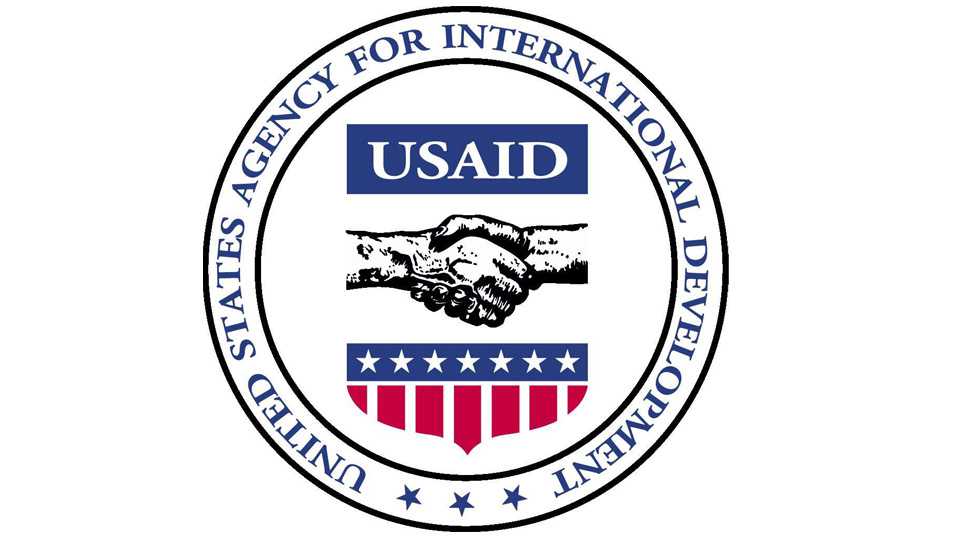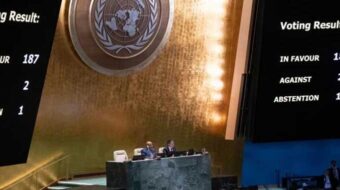
Cuba’s history with the United States oscillates between plodding continuity and moments of change. José Martí’s 1895 revolution for national independence and social justice could have ended Cuban dependency, but it failed to overturn Spanish rule. Revolutionary Cuba asserted itself again in 1959, but as in 1898, U.S. intrusion returned – with a vengeance.
In 2014, the United States seemed to cast aside Cold War-era aggressions and take a stab at normal relations. Now news stories – straws in the wind – suggest interventionist habits are alive and well.
One appeared in Voz, the Colombian Communist Party’s weekly newspaper. The report was of NGOs and academics gathering at a Bogotá hotel for six days in early September to develop “capacities for elaborating ‘shadow reports’ to be presented at international gatherings in order to discredit or endorse actions of various governments.” In attendance were representatives of groups in solidarity with LGBTI people. The Washington-based Institute on Race, Equality and Human Rights did the organizing.
According to its website, the “Institute” is “an international, human rights capacity-building organization working side by side with activists in Latin America to enhance their ability to promote and protect the human rights of marginalized and vulnerable people who suffer from discrimination… We strengthen grassroots organizations.”
The meeting’s purpose, said Voz, was to recruit and prepare people to enter other countries to create NGOs looking like “civil society” that put pressure on governments, Cuba’s included. In Cuba, the emissaries would be “masked as human rights specialists” in order to “conspire against the revolution,” according to the report.
Claiming that Cuba’s government denies the existence of racial discrimination, the Institute “works in Cuba to strengthen the capacity of our counterparts to monitor and document human rights violations committed against Afro-descendants and members of the LGBTI community.”
The founder and director of the Institute, which held similar conferences in other Colombian cities, is the Cuban-American lawyer Carlos Quesada. Voz says the U.S. Agency for International Development (USAID) and the National Endowment for Democracy (NED) each fund the Institute.
Additionally, there’s a news story, at least in Cuba, about U.S. outreach to Cuban young people. The State Department’s Bureau of Western Hemisphere Affairs in 2014 was looking for an organization to accept $1,212,000 in returning for mounting a “Summer Leadership Program for Cuban Youth.” Cuban high school students ended up visiting the United States in both 2015 and 2016.
They did so under the auspices of World Learning, a non-profit group based in Washington and Vermont that has long specialized in sending U.S. students to foreign countries and training people in international relations. The focus of the Summer Program for Cuban students was on “leadership development, civic education principles, and the structure of democratic organizations.”
Reporters recently interviewed students who visited the United States in 2015. Apparently, 34 of them traveled from Cuba to Panama and on to the United States. After orientation near Washington, they spent several weeks at the University of Virginia in Charlottesville before visiting with families throughout the United States.
The students received instruction in English, public speaking, and network creation and discussed dictatorship, human rights, and democracy. The program required that students form a plan for implementing what they had learned after their return to Cuba. “They would be creating a platform separate from state institutions that would become part of civil society,” according to one student.
Three Panamanians apparently traveled to Cuba to recruit them and afterwards escorted them to Panama. Representatives of World Learning met the students there and accompanied them to the United States. The Panamanians, paid $100 per day, illegally entered Cuba on a tourist visa, which didn’t cover what they were doing in Cuba.
In a recent speech, World Learning CEO Donald Steinberg, a former USAID deputy administrator, mentioned that, “We are a capacity-building NGO with about $100 million in 60 projects in dozens of countries worldwide, and four-fifths of our funding comes from USAID.” And, he added, “Growth in developing countries will be the primary market for American exports and American jobs over the next decades.”
U.S. advocates for normal Cuba-U.S. relations reject the economic, commercial, and financial blockade of Cuba and U.S. occupation of part of Guantánamo province. Joined by the Cuban media and government, they also reject insidious, expensive efforts to mold Cubans’ thinking to U.S. desires.
Josefina Vidal, the foreign ministry’s director of U.S. affairs, noted on September 30th that “We have insisted once again on the need to end programs aimed at provoking internal changes on the island, which would be an essential step toward normalizing bilateral relations.”
Entrenched within institutionalized U.S. processes, these projects won’t end soon, it seems. Apart from huge amounts of money provided for propaganda through Radio and Television Martí, publicly-acknowledged U.S. funding for so-called “democracy promotion” in Cuba passes through USAID and NED. These agencies deliver it to high-purposed NGOs that pay agents to meddle directly inside Cuba. Or they pay Cuba’s enemies abroad to arrange for such intrusions.
Between 1996 and 2015 the U.S. Congress appropriated $284 million for “democracy promotion” projects inside Cuba – $139 million during the two Obama administrations. The House of Representatives version of the State Department appropriations bill for 2017 calls for $30 million for democracy promotion.












Comments